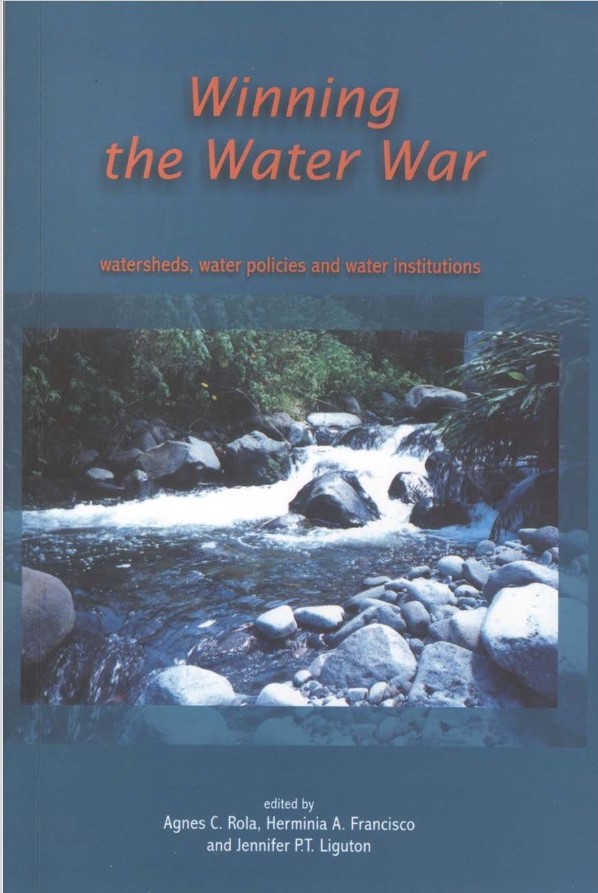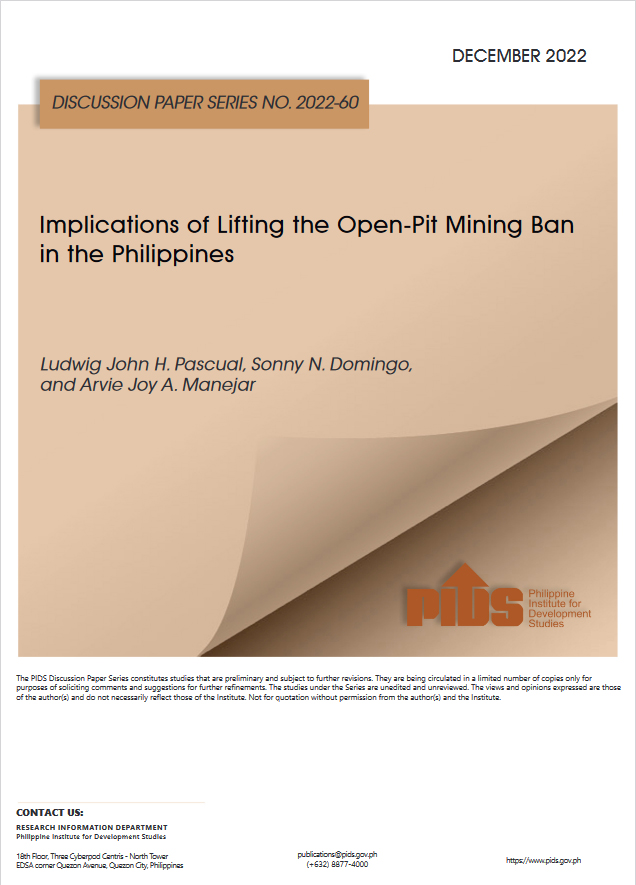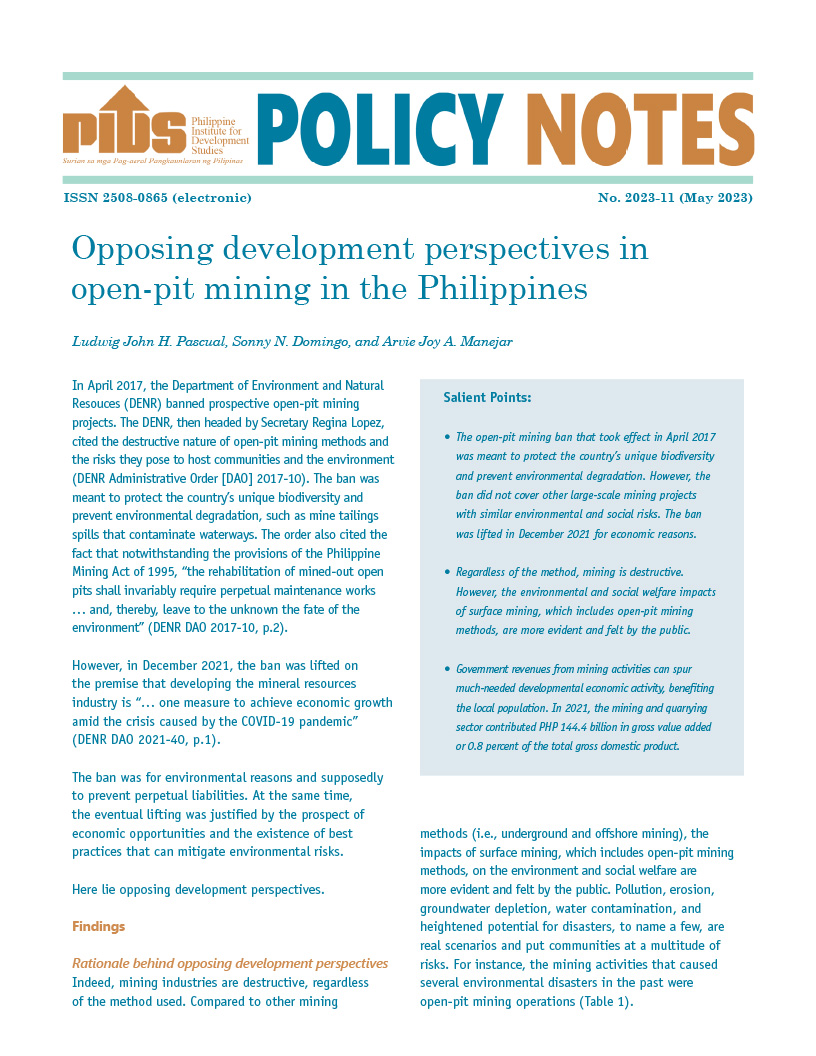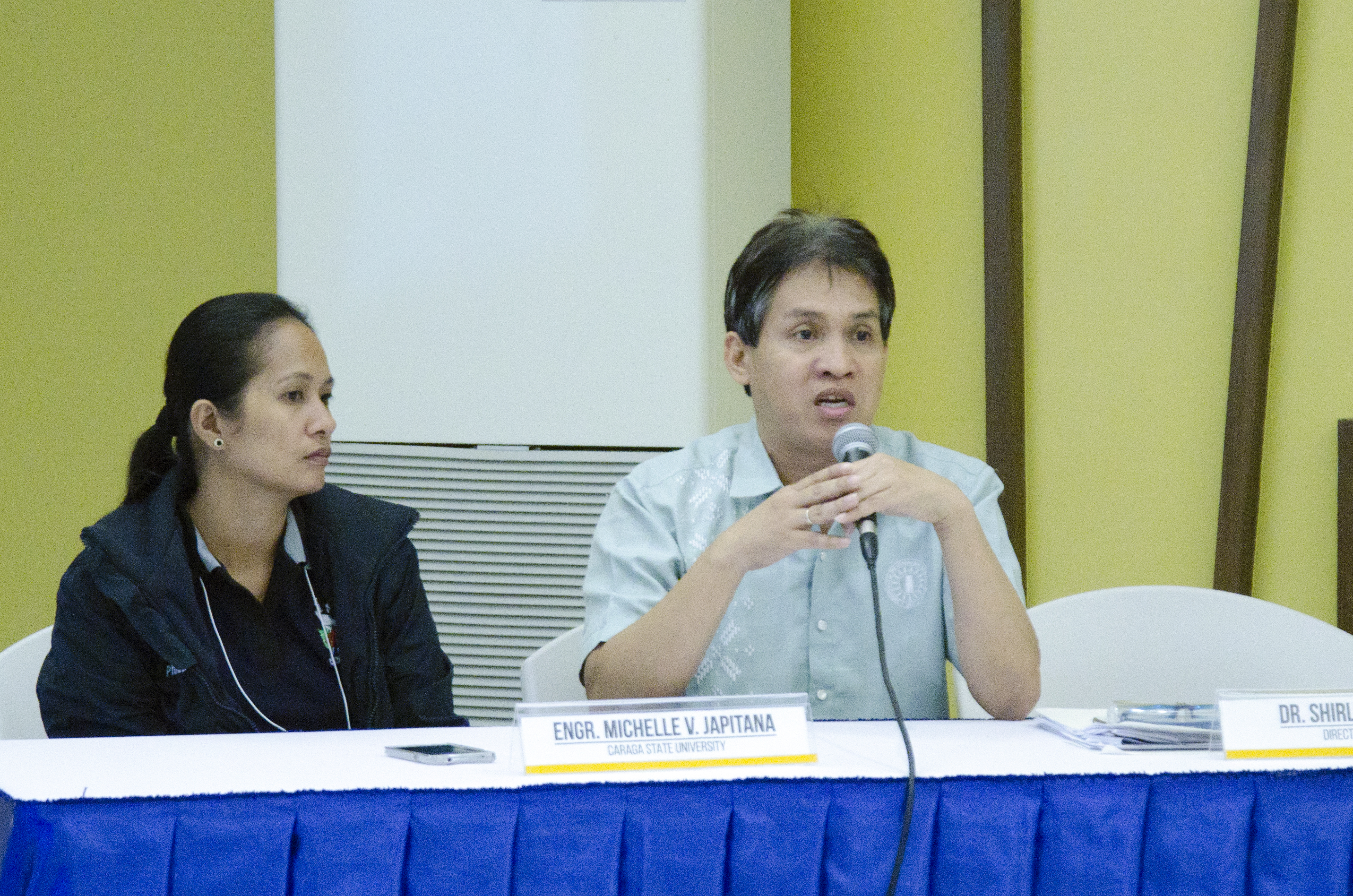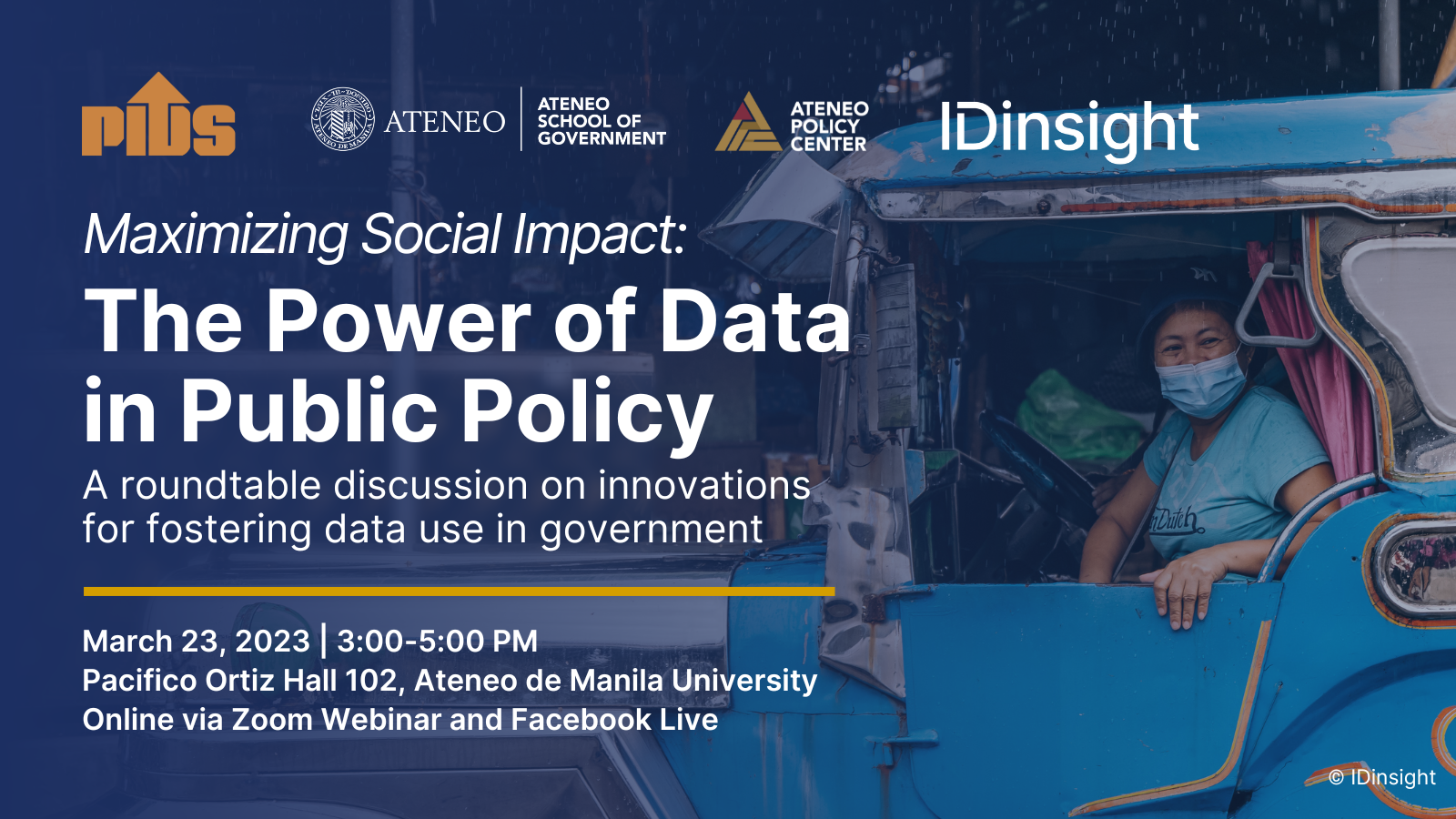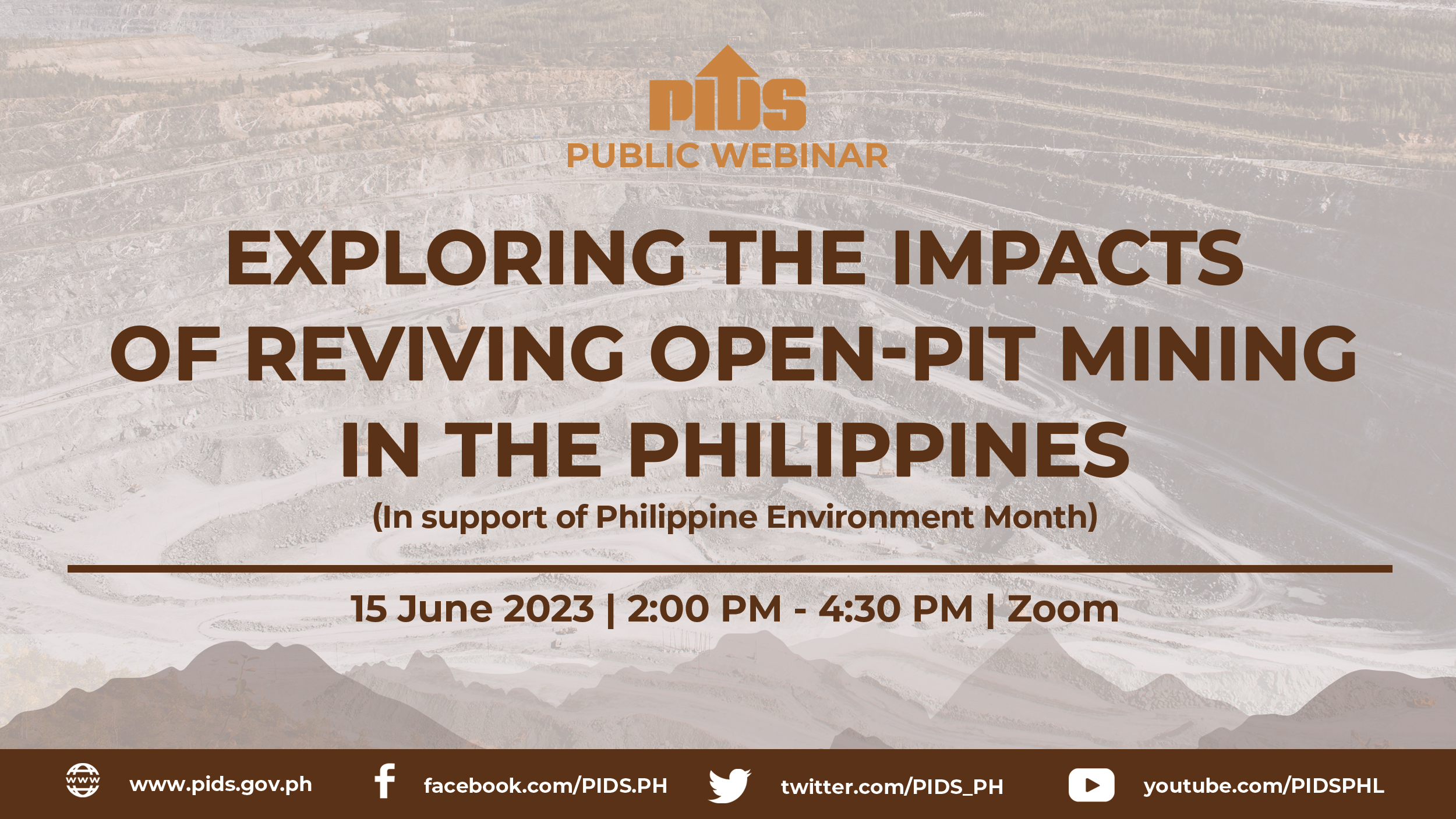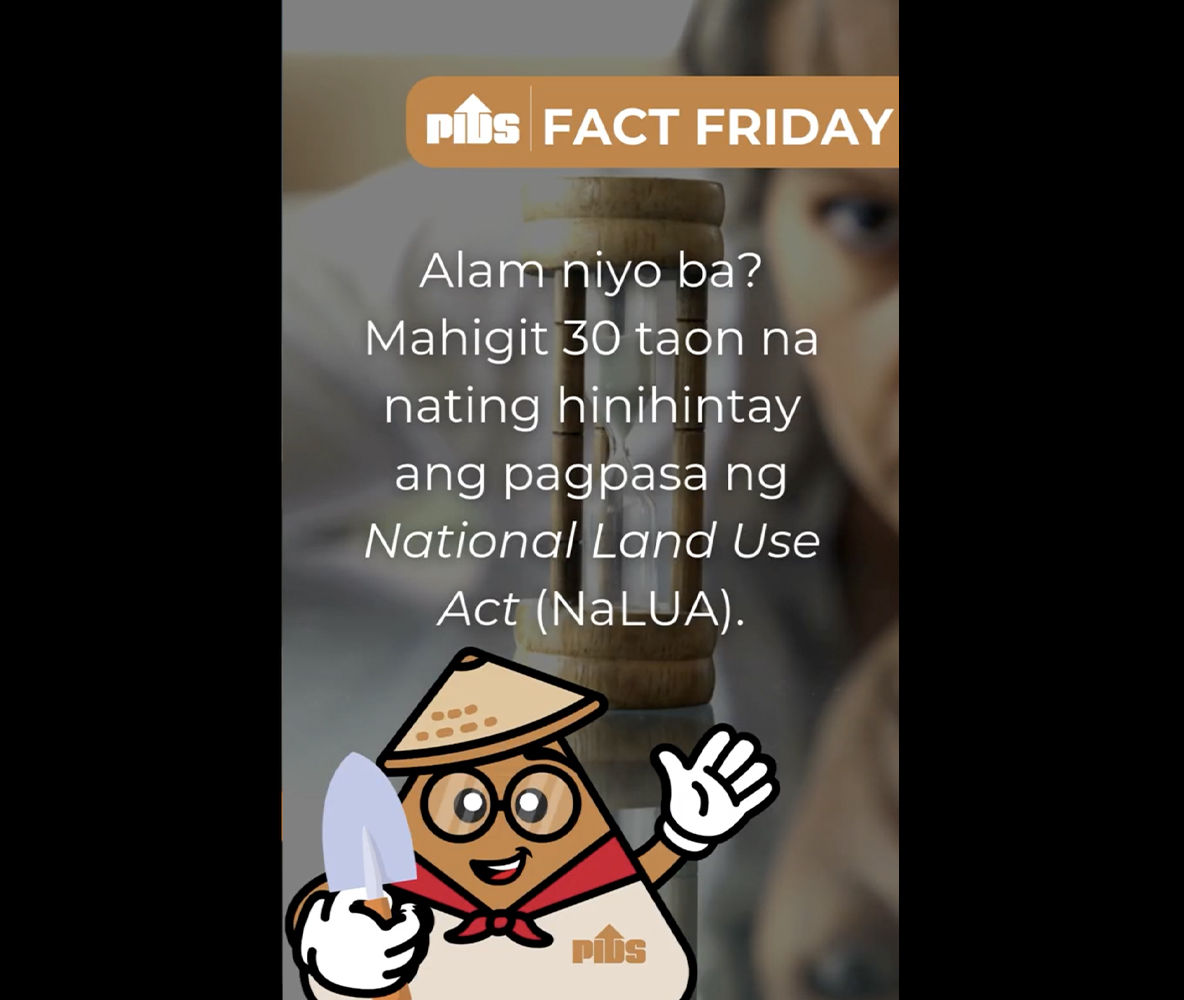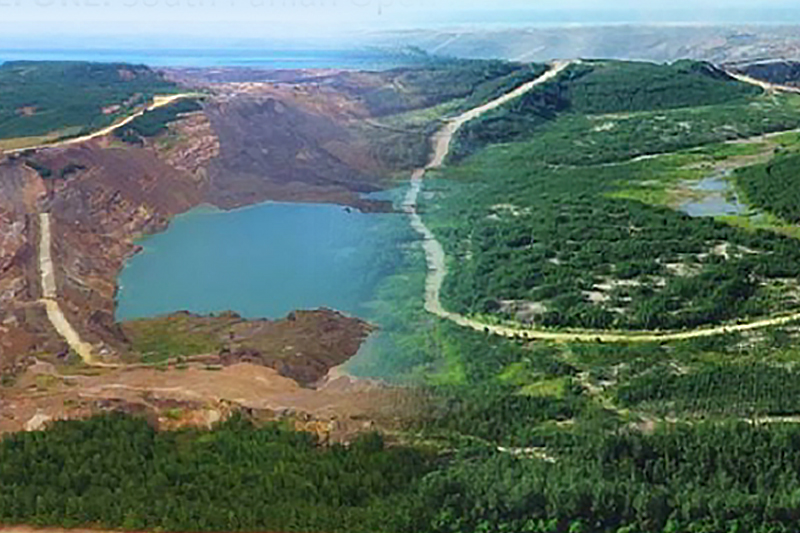
Optimizing the economic benefits of open-pit mining and mitigating its negative impacts on environmental and social welfare is possible if the industry establishes sustainability indicators and monitoring and evaluation (M&E) platforms to strengthen transparency, institutional capacity, and accountability.
This was emphasized by Ludwig Pascual, consultant and coauthor of the study “Implications of Lifting the Open-Pit Mining Ban in the Philippines”, featured at a public webinar organized by the Philippine Institute for Development Studies (PIDS) recently. The study, which he co-wrote with PIDS Senior Research Fellow Sonny Domingo and Research Specialist Arvie Joy Manejar, investigated the implications of lifting the open-pit mining ban by highlighting ecological concerns vis-à-vis economic opportunities and proposing strategies for sustainability.
According to the study, the mining industry had a production value of PHP 224 billion in 2021 and contributed over USD 46 billion to the country’s exports. However, ecological integrity concerns posed by mining activities, such as disaster risks, natural resource depletion, pollution and chemical toxicity, illegal use of explosives, contamination of water bodies, displacement of families, and inequitable distribution of benefits, remain serious issues.
Pascual emphasized the need to “augment the mining fiscal regime for appropriate benefit sharing”, programming mining revenues toward programs, projects, and activities for developing human capital and ecological integrity, and increasing compensation for damages to communities.
Marian De Los Angeles, webinar discussant and board member emeritus of Resources, Environment, and Economic Center for Studies, acknowledged that mining is not a sustainable activity, but sustainable income from mining is possible under certain conditions.
“Environmental, social, and governance principles should be practiced by miners, regulators, and the local community. Mining investments should also anticipate various risks and practice adaptive management to manage these risks,” she said.
Delos Angeles recommended that mining companies conduct feasibility studies and environmental impact assessments (EIAs) to determine the social and environmental costs. She added that EIAs are currently full of poorly understood indicators and recommended converting these into monetary terms that will allow for better valuation and generate data on ecosystem impacts that can be used for social benefit-cost analysis.
Meanwhile, fellow discussant and Eramen Minerals Vice President for Operations Alexandrie Amadeo pointed out that when mining projects are implemented and monitored properly, the nearby communities may enjoy long-term economic boosts and better infrastructure. However, he warned that social conflicts may arise if the benefits are unequally distributed. Moreover, communities may experience soil and water contamination, health issues, and habitat loss with unmitigated mining pollution. With proper regulations and strategic planning, mining communities may avoid economic difficulties once the resources are depleted.
“Enforcing regulations, addressing policy stability, and securing minerals properties away from non-compliant mining can be done for short-term management. Engagement with communities is crucial, and revenue from mining can address environmental and social concerns and contribute to long-term development such as infrastructure, hospitals, and social services,” he said.
Department of Environment and Natural Resources-Mines and Geosciences Bureau (DENR-MGB) Mine Environmental Audit Section Chief Danny Berches shared that MGB is conducting a nationwide rollout of policies and learning events to integrate biodiversity into mining operations. It is also promoting sustainable resource management.
He acknowledged the need “to improve the capacity to enforce mining laws and environmental regulations, and the importance of national laws taking precedence over local ordinances”.
“While economic reasons are often highlighted for lifting the ban on open-pit mining, the DENR recognizes the importance of intensifying monitoring of mining operations to safeguard the well-being of communities and the environment,” he supplied.
Watch the webinar at https://fb.watch/lihyBgZ-Si/ or https://youtu.be/NuLT04ywY7I.
For more videos of PIDS events, go to https://www.pids.gov.ph/videos. ###

